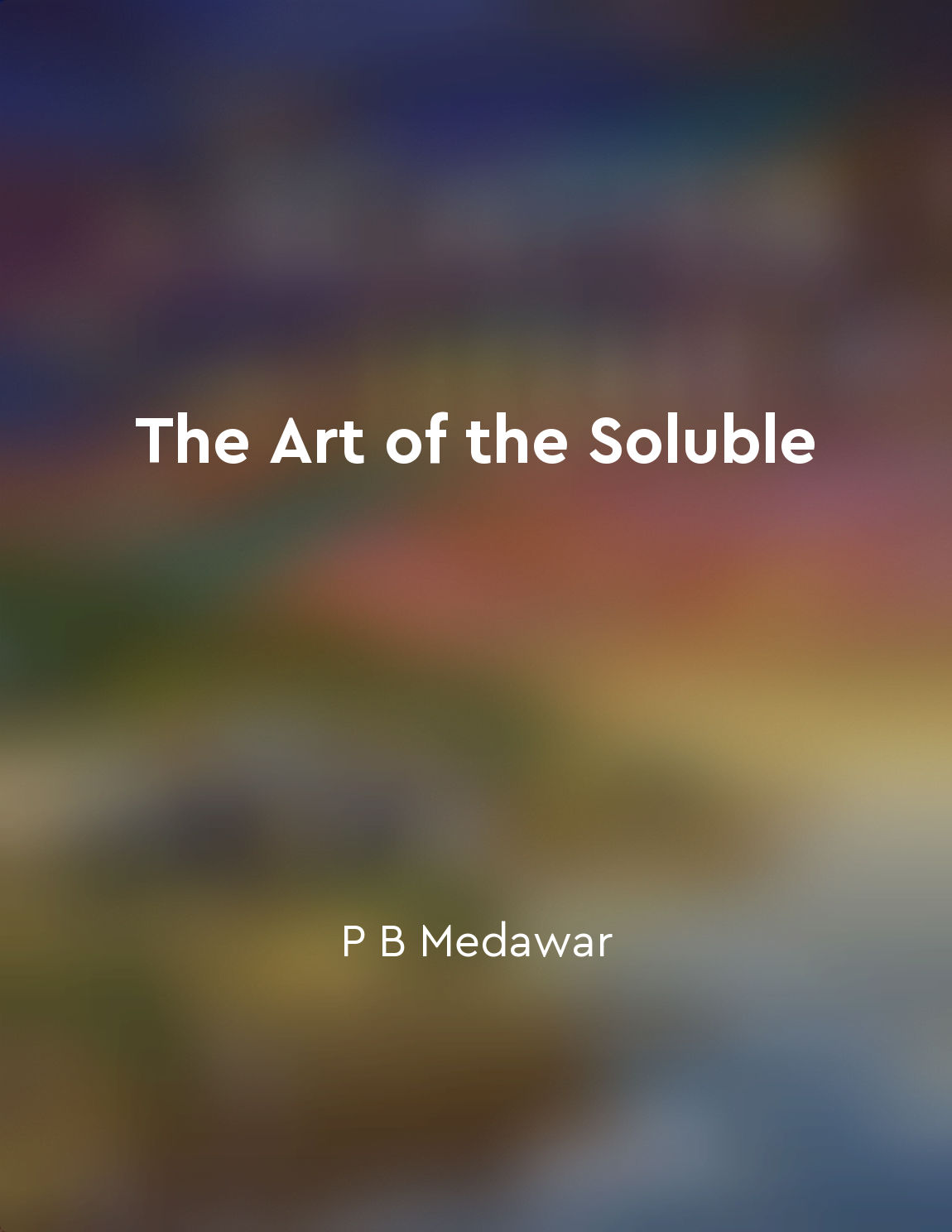Appreciating the beauty of nature deepens our understanding of science from "summary" of Storm in a Teacup by Helen Czerski
The intricate patterns of a spider's web, the mesmerizing dance of the Northern Lights, the graceful curves of a seashell - these are just a few examples of the beauty that can be found in nature. At first glance, it may seem like these phenomena are purely aesthetic, meant to be admired for their visual appeal. However, when we take the time to truly appreciate the beauty of nature, we can deepen our understanding of science in ways we never imagined. By observing the intricate patterns of a spider's web, for example, we can begin to understand the underlying principles of physics and mathematics that govern its structure. The way the threads are arranged, the spacing between each strand, the strength and flexibility of the silk - all of these elements are a result of the spider's innate understanding of engineering principles that have been honed over millions of years of evolution. Similarly, when we gaze up at the night sky and marvel at the shimmering colors of the Aurora Borealis, we are witnessing the complex interactions between charged particles from the sun and the Earth's magnetic field. By appreciating the beauty of this natural light show, we can gain a deeper understanding of the intricate processes that occur in our atmosphere and how they impact our planet. Even something as simple as a seashell can hold valuable insights into the world of science. The spiral patterns found in shells follow a mathematical sequence known as the Fibonacci sequence, which is a fundamental concept in mathematics and nature. By studying the shapes and structures of seashells, scientists can uncover the underlying mathematical principles that govern the natural world around us.- When we take the time to appreciate the beauty of nature, we are not just admiring its aesthetic qualities - we are delving deeper into the world of science and gaining a greater understanding of the mechanisms and processes that govern our universe. Nature has a way of captivating us with its beauty, but it also has the power to teach us valuable lessons about the world we live in. So the next time you find yourself marveling at the wonders of the natural world, remember that you are not just witnessing beauty - you are gaining a deeper understanding of the intricate tapestry of science that surrounds us.
Similar Posts

Intellectual honesty is crucial in scientific inquiry
Intellectual honesty in scientific inquiry is a foundational principle that cannot be overlooked. It is essential for researche...
The use of scientific methods
Scientific methods are the tools we use to find out about the world. They are the ways we discover truths about reality. These ...
Natural instincts guide human behavior
Our actions are governed by natural instincts that guide our behavior without the need for conscious deliberation or reasoning....
Intuitions without concepts are blind
Intuitions without concepts are blind. Without concepts, intuitions lack the ability to be understood or make sense of the worl...
Emulating nature's resilience can improve human systems
Nature has had billions of years to perfect its designs and systems, resulting in incredible resilience. By studying and emulat...
The connection between mathematics and physics
Mathematics and physics have always had a deep and intricate relationship. The language of mathematics is like a universal code...
Brain's activity generates mind's experiences
The idea that the brain's activity generates the mind's experiences is a fundamental concept in neuroscience. Our brain is a co...
Feedback loops amplify small changes in chaotic systems
In a chaotic system, even the smallest change can have significant repercussions. This is due in part to the presence of feedba...
The nature of reality is inherently uncertain
The world we live in is a complex and intricate place, full of mysteries waiting to be unravelled. Despite our best efforts to ...

